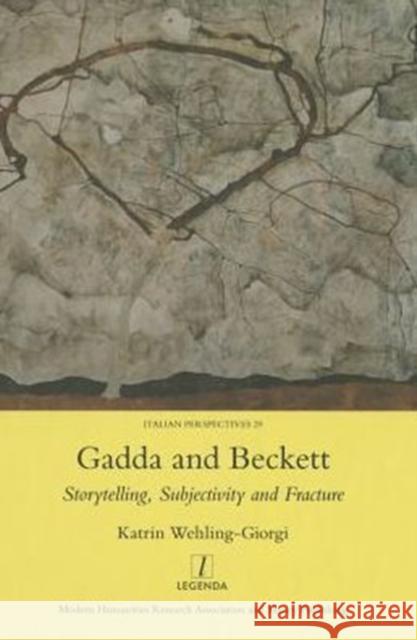Gadda and Beckett: Storytelling, Subjectivity and Fracture: Storytelling, Subjectivity and Fracture » książka
Gadda and Beckett: Storytelling, Subjectivity and Fracture: Storytelling, Subjectivity and Fracture
ISBN-13: 9781907975998 / Angielski / Twarda / 2014 / 176 str.
While the writing of Carlo Emilio Gadda (1893-1973) is renowned for its linguistic and narrative proliferation, the best-known works of Samuel Beckett (1906-89) are minimalist, with a clear fondness for subtraction and abstraction. Despite these face-value differences, a close reading of the two authors' early prose writings reveals some surprisingly affinitive concerns, rooted in their profoundly troubled relationship with the literary medium and an unceasing struggle for expression of an incoherent reality and a similarly unfathomable self.
Situating Gadda and Beckett at the heart of the debate of late European modernism, this study not only contests the position of 'insularity' frequently ascribed to both authors by critical consensus, but it also rethinks some of Gadda's plurilingual and macaronic features by situating them in the context of the turn-of-the-century Sprachkrise, or crisis of language. In a close analysis of the primary texts which engages with the latest findings in empirical research, Wehling-Giorgi casts fresh light on the central notions of textual and linguistic fragmentation and provides a new post-Lacanian analysis of the fractured self in Gadda's and Beckett's narrative.











